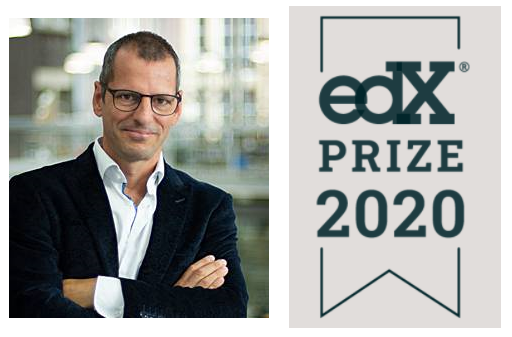Energy-neutral buildings course wins edX Prize 2020
Andy van den Dobbelsteen, Eric van den Ham and Tess Blom (Faculty of Architecture and the Built Environment) are the winners of the 2020 edX Prize for Exceptional Contributions in Online Teaching and Learning, with their online course “Zero-Energy Design: an approach to make your building sustainable”. Their MOOC is designed to help participants figure out which energy measures can be applied to make their buildings (more) sustainable and zero-energy consuming.
An innovative and personalised approach
The edX contest celebrates the contributions and innovations of educators in the edX community, and amplifies the powerful role that online learning at scale plays in the transformation of education today. It recognizes teachers who have demonstrated a commitment to the open and online education community and who have taught courses and programs that continue to inspire and engage edX learners everywhere. “We are delighted to present TU Delft Professors Andy van den Dobbelsteen and Eric van den Ham and Researcher Tess Blom with the edX Prize,” said Anant Agarwal, edX Founder CEO. “Together, they took an innovative and personalized learning approach to teaching the important topic of sustainable design. I am honoured to recognize this team and offer our sincere gratitude for their commitment to furthering the edX mission and working to improve teaching and learning worldwide.”
Energy-neutral buildings
“We are very proud winners of this prize”, says Van den Dobbelsteen. “When our team initiated the online course on this societally urgent and scientifically relevant theme, we wanted to offer a very clear and helpful stepped approach, presented in short lectures, week by week. Perhaps even more importantly, we wanted to make it pleasant and fun to follow for everyone across the world. That is why we invested in short documentaries on energy-neutral buildings, which connected the theory of zero-energy design to interesting practical examples.”
Different countries and environments
The MOOC is designed to bring architectural expertise directly to the learners’ own buildings; it helps participants figure out which energy measures can be applied to their specific situation and climate, in order to make their buildings (more) sustainable and zero-energy consuming. The stepped approach, the evaluation matrix and the tools offered for each step in the course can be applied to judge and intervene both on familiar, local buildings, and to designs in different countries and environments.
Energy Slaves gets an ‘Oscar’
Recently, another production of Van den Dobbelsteen, the short film titled ‘Energy Slaves’ won a Golden Heron Award, the Dutch ‘Oscar’ for commissioned films. Van den Dobbelsteen on this project, which is also featured in the MOOC: “We wanted to demonstrate the immense use of energy in common households, by means of a short, funny and dramatic film that I’ve had in mind for years. This became ‘Energy Slaves’, which was produced by Oculus Film.” The creative concept and innovative performance were a hit with the film jury: “What a feast for the eyes! They manage to make the viewer think about their own behaviour. The dilemma in your own head about what you do, and should do, keeps you busy for a long time. In short: we want to see this kind of movies more often!”
Success
TU Delft is very successful with its over 120 MOOCs. The first MOOC, Solar Energy by Arno Smets, was awarded the very first edX Prize in 2016. Recently, the university registered its 3 millionth MOOC enrolment and, once again, ranks No. 1 in the World University Rankings by MOOC Performance 2020
